Do read his article - here's the link.
|
Fahad Shah, editor of the Kashmir Walla, has written tellingly of the damage caused to Kashmir's museums, archives and the historic shops and businesses on the Bund by the recent floods. 'The city's most famous buildings, museums and other safehouses of Kashmiri culture', he says, 'have been damaged beyond repair.'
Do read his article - here's the link.
0 Comments
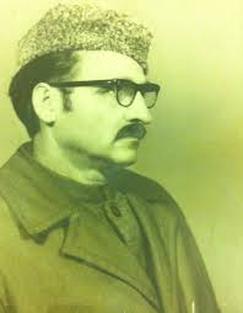 Ranjoor (Kashmir Walla) Ranjoor (Kashmir Walla) In the Kashmir Walla, Sanya Mansoor writes about her grandfather Abdul Sattar Ranjoor, a poet, champion of the Kashmiri language and leftist. Here's the link to the article. Ranjoor (1917-1990) was active in the National Conference's Quit Kashmir movement, became exposed to Marxist ideas while in Lahore, and was a key figure in the Communist Party in Kashmir. The article includes a translation of Ranjoor's poetic plea to Sheikh Abdullah to put Kashmir's independence ahead of an understanding with Nehru and India - here it is: Kashristanuk Khayal (The Idea of Kashristan)
Please take great care You are a Kashmiri so remember the idea of an independent Kashmir I heard you have to sign an important document Please think and consider our great heritage Let no one fool you Don’t let your newfound friendship trick you It’s not what it looks like His helping hand is an illusion The stick he offers to help may turn out to be a snake As Srinagar and surrounding areas continues to grapple with the aftermath of the devastating floods, Zahid G. Muhammad has devoted his latest column in the Greater Kashmir newspaper to a reflection on the historical parallels - and on the scale of the task of rebuilding.
Here's the link to his column, entitled 'Towards Rebuilding Kashmir' - and a brief extract is posted here: 'Historically, floods and Kashmir have been made for each other. Chronicles and folklore of Kashmir is full of stories about ravages caused by heavy downpour and floods. ... 'The Sultans of Kashmir took steps to prevent frequent recurrence of floods in Kashmir. The capital was shifted to the foot of Koh-i-Maran hillock in the middle of the city. And after the floods of 1462, the embankments of Jhelum were raised and strengthened, as had been done in 9th century by Suyya. River bed at Baramulla was deepened ‘for speedy discharge’ of waters. History also tells us that after devastating floods of 1638, Mogul emperor Shah Jehan personally supervised the relief work and worked zealously to see death toll reduced. Hardly has been a period in our history that has not witnessed a deluge. ... 'The nearest comparison to the flood of 7 September 2014 could be that of July 1893, as documented by Sir Walter R. Lawrence and captured through the lens by a British photographer / tourist from Takhet-e-Sulieman, the Mount Solomon. Fifty two hours incessant rains had deluged almost the entire city. Of the six bridge of the Srinagar city, the flood waters had washed five of them. ‘Amira Kadal the first bridge had withstood the floods but was underwater.’ Across the valley the floods had destroyed 2225 houses.' Hamilton College in New York state has been staging a two-day symposium in honour of the Kashmiri American poet Agha Shahid Ali (1949-2001), who was a professor at the college. His archive is held at Hamilton, and much of it is available in digital form. There's more information about the symposium and the Beloved Witness project which is making the archive available digitally here, and there's also a note on the background to the symposium. The Poetry Foundation's website devotes a page to Agha Shahid Ali and his work. As Scotland votes in an independence referendum, Andrew Whitehead looks at the failure to hold a referendum in Kashmir first promised in 1947 ... what the historian Yasmin Khan describes as "probably the most important referendum that never happened".
'Several thousand Kashmiris will be voting in a historic and much awaited referendum, this week. That vote will determine whether a region with a distinct identity can successfully secede from a much larger nation. Their ballots will be cast, however, in Glasgow - not in Srinagar or Jammu.' Here the link to the article. Jonah Blank has an article in Foreign Policy journal entitled 'Lets talk about Kashmir'. It has the wordy subtitle: 'Could Modi, Islamabad, and the U.S. troop drawdown in Afghanistan make the disputed territory the world's next terrorist hotspot?'
The answer Blank offers to his own question is: perhaps, but it's a sufficient prospect to merit a strategic response. The article offers a reliable, concise account of the contours of the militancy in Kashmir since 1988. Blank argues that the impact of Kashmir-focussed armed movements has been much greater than the western powers have sometimes realised: 'Both LeT and JeM have their roots in Afghanistan -- but turned into terrorist groups of concern to the United States only after shifting their focus to Kashmir. Moreover, these and similar groups became potent generators of splinter cells and radicalized individuals.' The article's approach - in line with Foreign Policy's remit and its strap-line 'a trusted adviser to global leaders when the stakes are highest' - is principally about the security threat that groups active (perhaps newly active) in Kashmir may pose to American interests. Blank's concluding thought: 'One lesson from the 1990s should inform all strategic planning: What happens in Kashmir does not stay in Kashmir.' Here's a link to the Foreign Policy article. Please see the Update at the end of this article - the original version of the text has been revised to reflect this new information:
In the letter, Faiz writes: The Muslims have got their Pakistan, the Hindus and Sikhs their divided Punjab and Bengal, but I have yet to meet a person, Muslim, Hindu or Sikh who feels enthusiastic about the future. I can't think of any country whose people felt so miserable on the eve of freedom and liberation. Both morally and politically the British could not have hoped for a greater triumph. Alys and Faiz married at Pari Mahal in Srinagar in 1941 - Sheikh Abdullah solemnised the nikah. Her sister Christobel married Dr M.D Taseer, a Marxist and college principal in Srinagar - their son Salman Taseer was governor of the Pakistan province of Punjab and was assassinated in 2011 over his stand for reform of the blasphemy laws. Here's the link to Salima Hashmi's article - but see the Update below. It would be intriguing to know if there are more letters from and about Srinagar in the cache that has been uncovered. At the same time, Dawn has announced that there is to be a celebration of the centenary of Alys Faiz's birth on September 20th - the precise anniversary is two days later.
UPDATE: We've heard directly from Salima Hashmi that the ScrollIn article, which cites a letter it says Alys sent from Srinagar to Faiz in Lahore in 1947, contains a material error. She says: 'Actually the letter is erroneously attributed to my mother. Both letters are to her from my father. Both written to her in Srinagar from Lahore. He was working at the Pakistan Times which appeared in August that year. This error is because I made a verbal presentation at a Seminar in Bangalore...which included her letters written to him when he was in jail in the 50's . I have yet to find time to sort this one out!' |
Kashmir
|
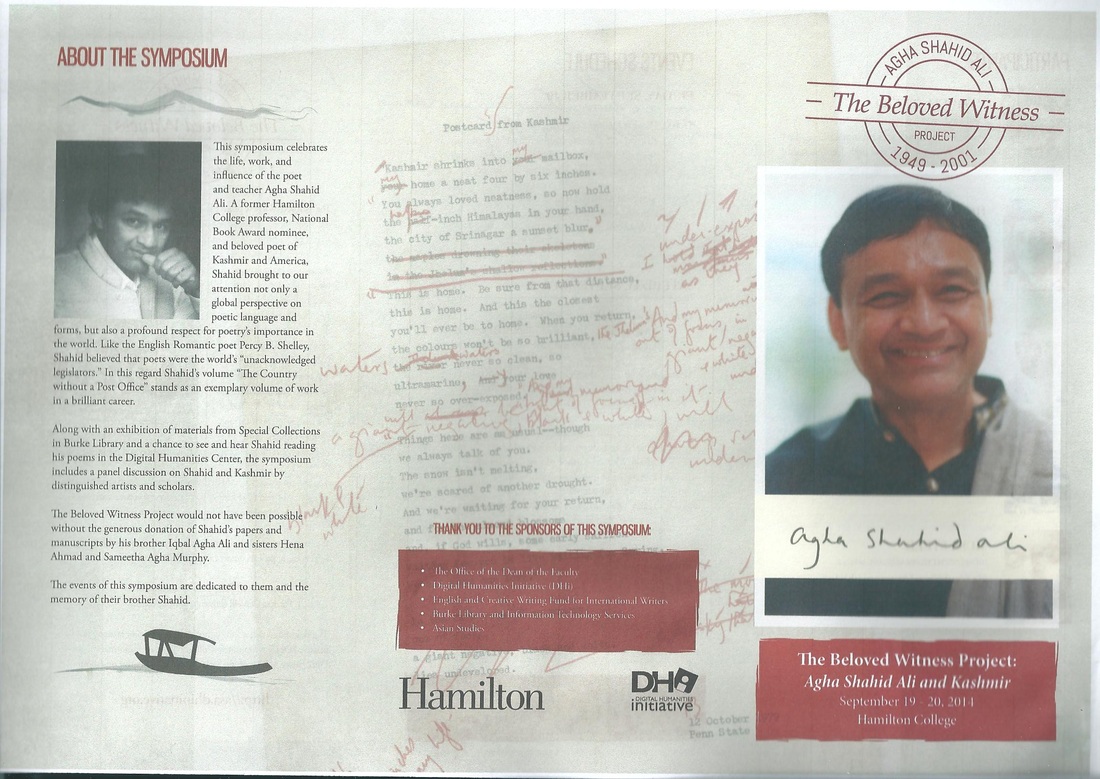
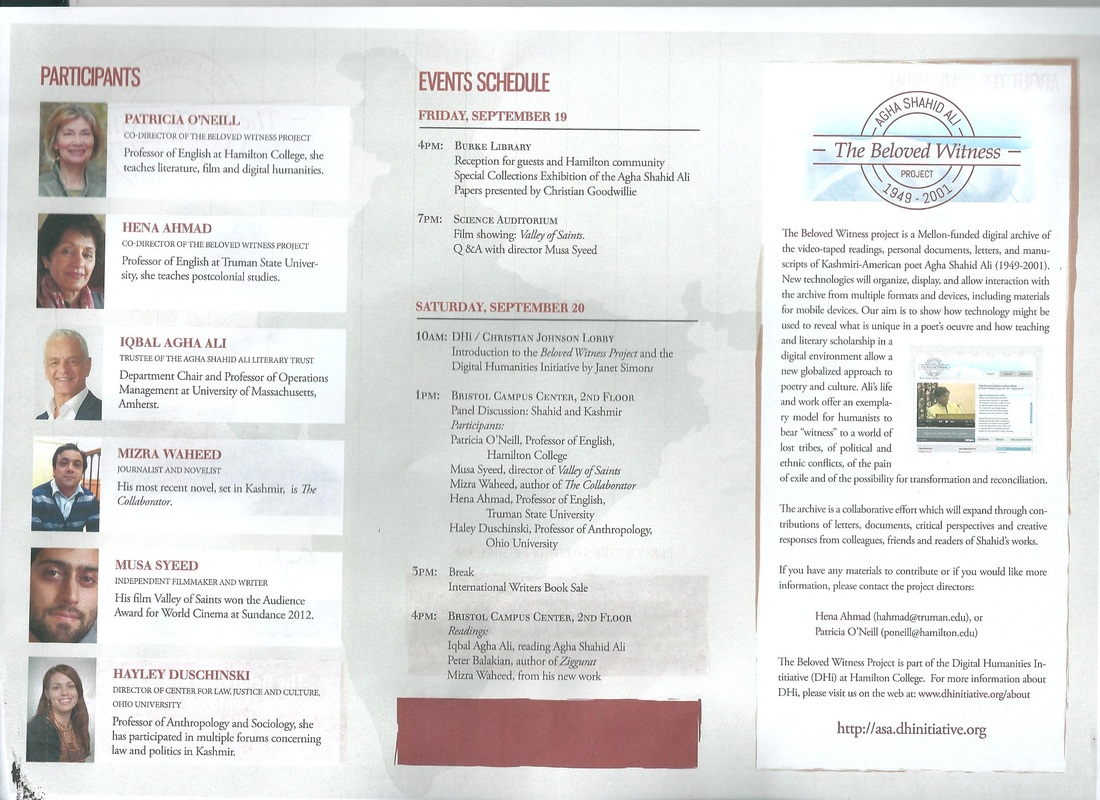
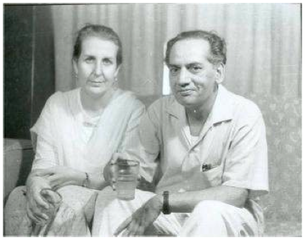
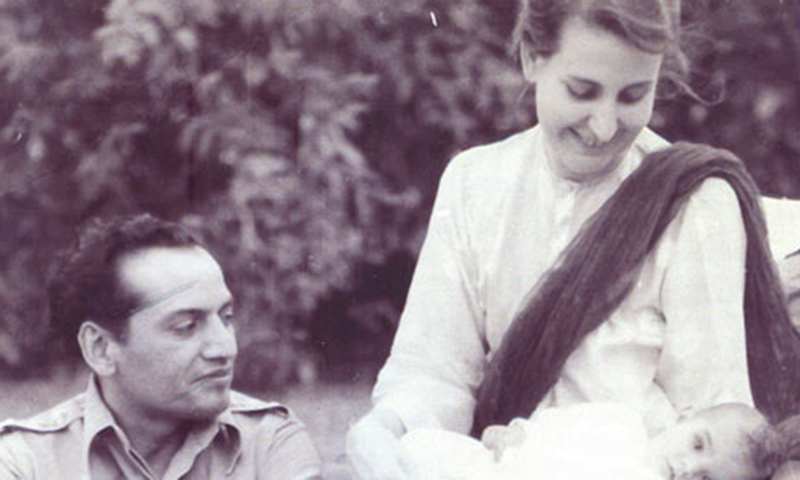
 RSS Feed
RSS Feed